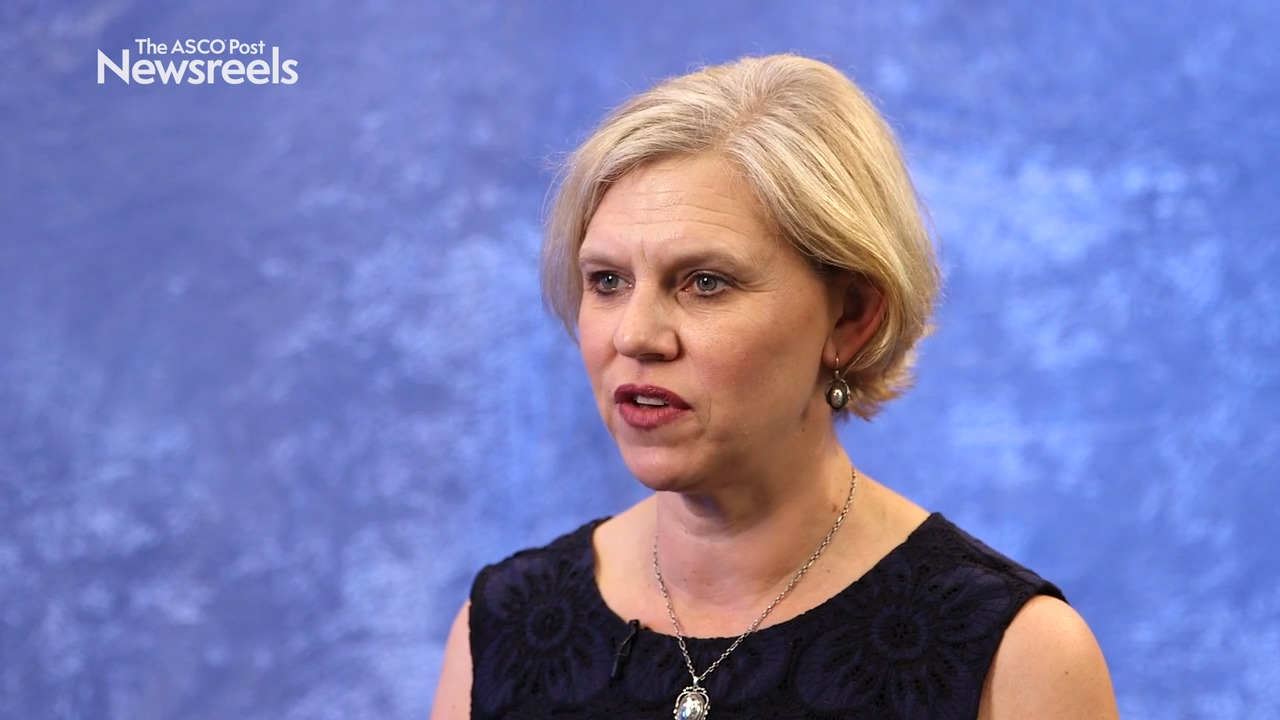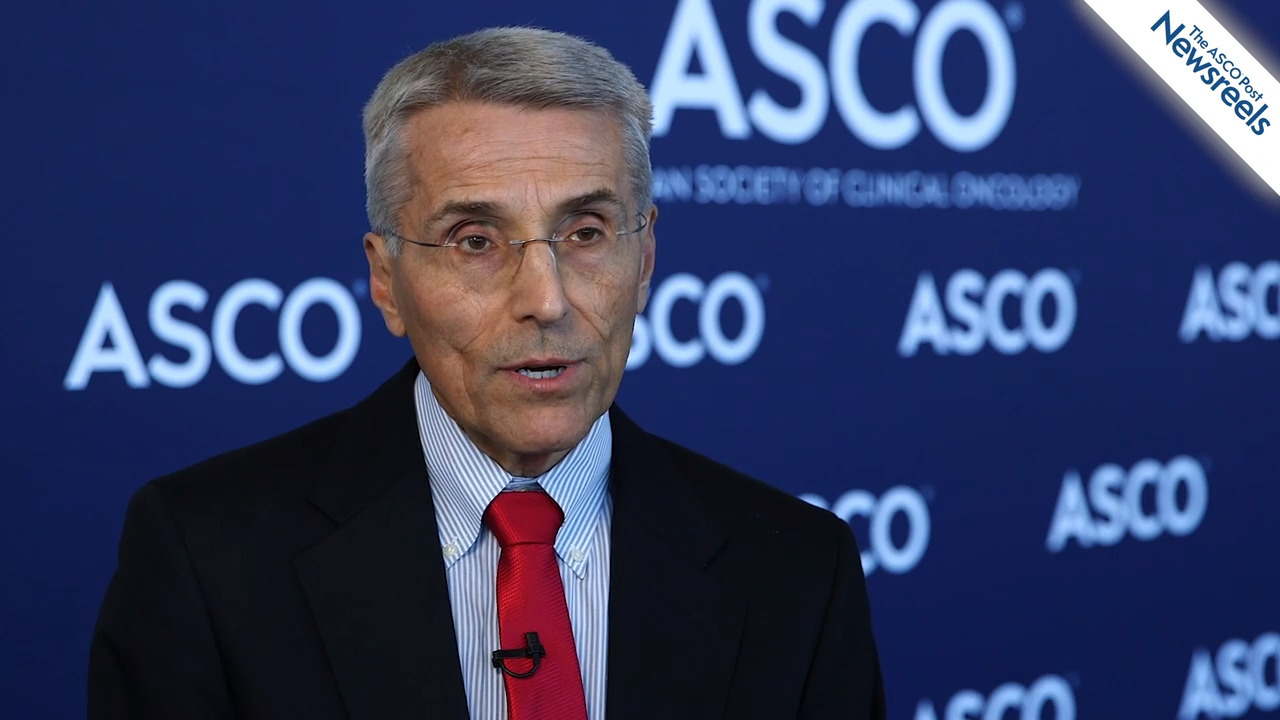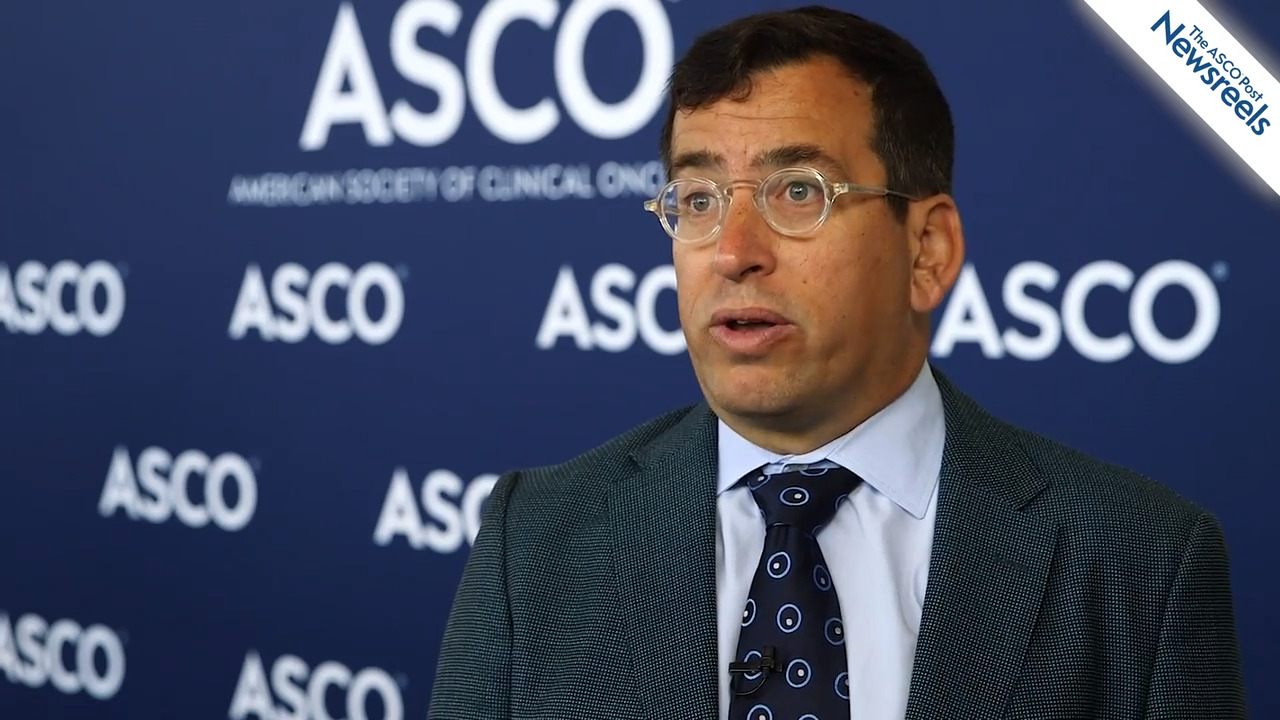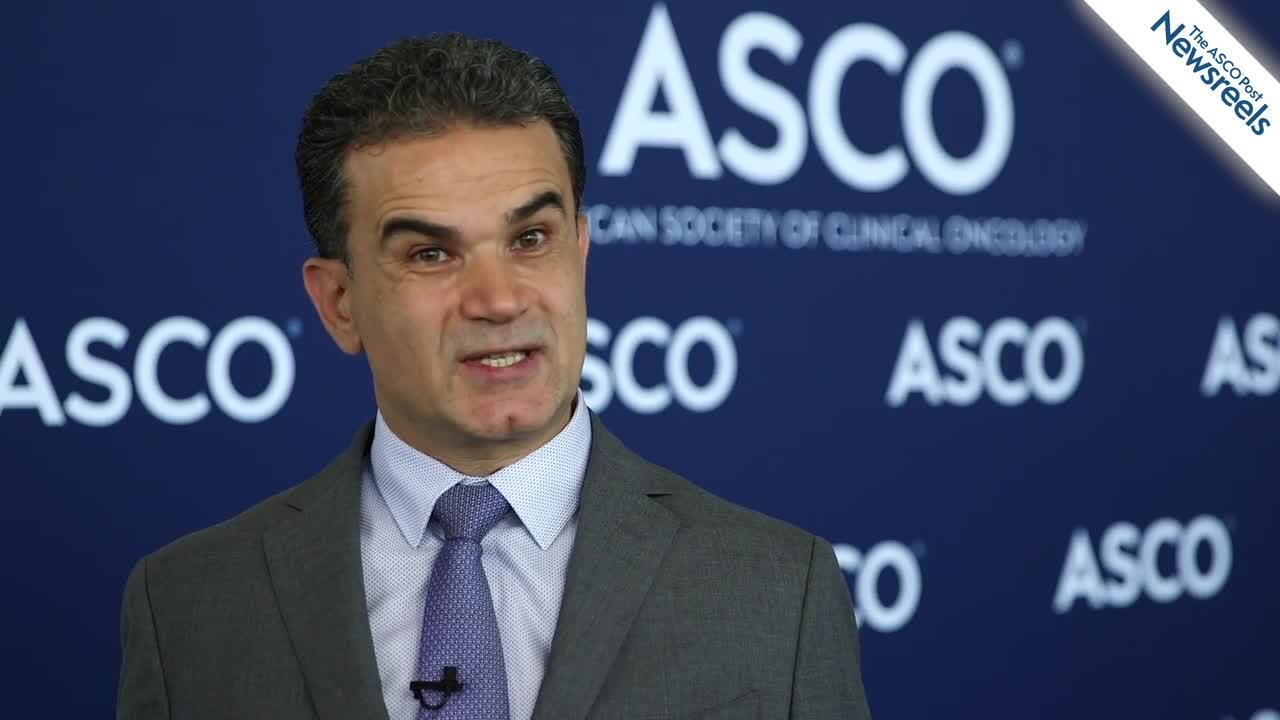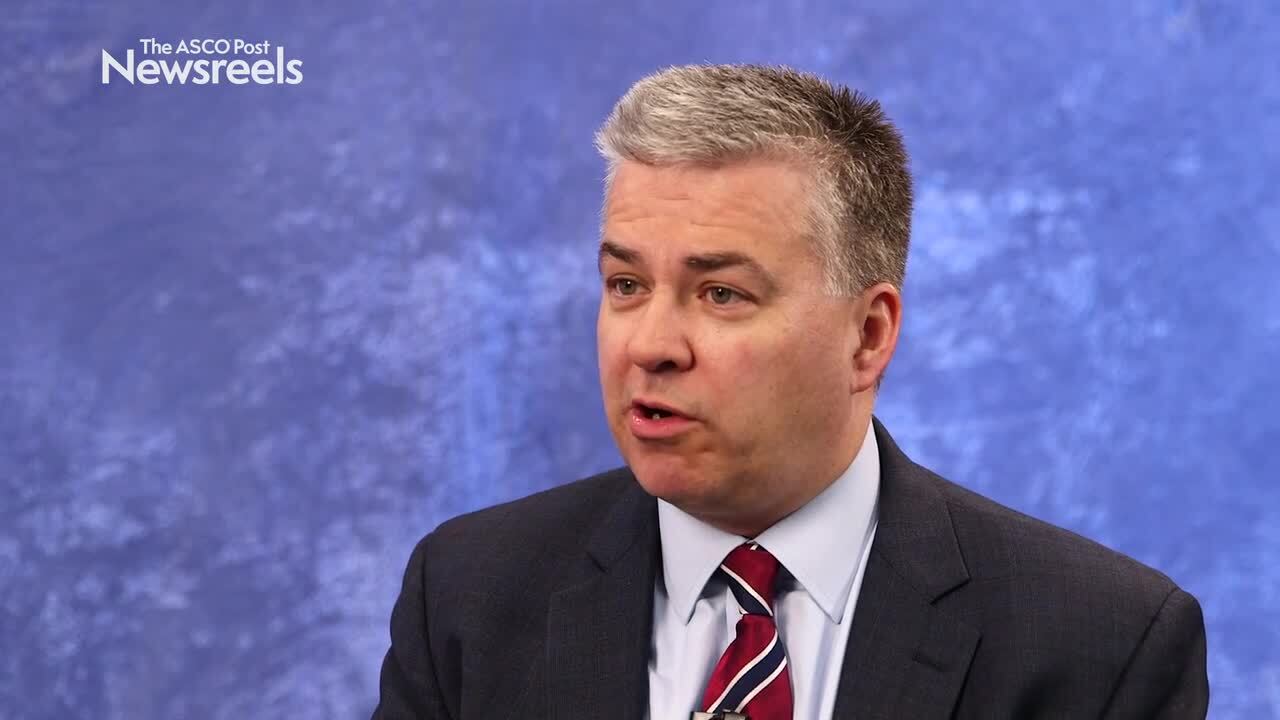Matt D. Galsky, MD, on Urothelial Cancer: Pembrolizumab vs Placebo After First-Line Chemotherapy
2019 ASCO Annual Meeting
Matt D. Galsky, MD, of The Tisch Cancer Institute at Icahn School of Medicine at Mount Sinai, discusses phase II study findings that show switch maintenance with pembrolizumab significantly improves progression-free survival in the metastatic setting (Abstract 4504).
Yoland C. Antill, MD, of Cabrini Health, discusses phase II data on the effect of durvalumab, a PD-L1 inhibitor, as a single agent in the setting of recurrent or advanced endometrial cancer. Her research compares the response in mismatch repair–deficient and –proficient tumors (Abstract 5501).
Richard Pazdur, MD, Director of the U.S. Food and Drug Administration (FDA) Oncology Center of Excellence and Acting Director of the Office of Hematology and Oncology Products in the FDA’s Center for Drug Evaluation and Research, discusses the launch of Project Facilitate, a new pilot program to assist oncology health-care professionals in requesting access to unapproved therapies for patients with cancer.
Contact Information for Project Facilitate
Health-Care Professionals
Call: 1-240-402-0004
Patients and Their Families
Call: 301-796-3400
Edward B. Garon, MD, of the David Geffen School of Medicine at the University of California, Los Angeles, discusses long-term survival data on patients with advanced non–small cell lung cancer treated with pembrolizumab and those with PD-L1 expressed in at least half of their tumor cells (Abstract LBA9015).
Ahmad A. Tarhini, MD, PhD, of Emory University and Winship Cancer Institute, discusses phase III findings from the U.S. Intergroup E1609 trial, which showed survival benefits for patients with resected high-risk melanoma—for the first time in the history of melanoma adjuvant therapy (Abstract 9504).
Michael A. Thompson, MD, PhD, of Advocate Aurora Health, discusses the implications of the revised diagnostic criteria for multiple myeloma, which removed patients at the highest risk of disease progression from the smoldering group, and a new model for smoldering disease that incorporates revised cutoffs for the previously used parameters (Abstract 8000).
